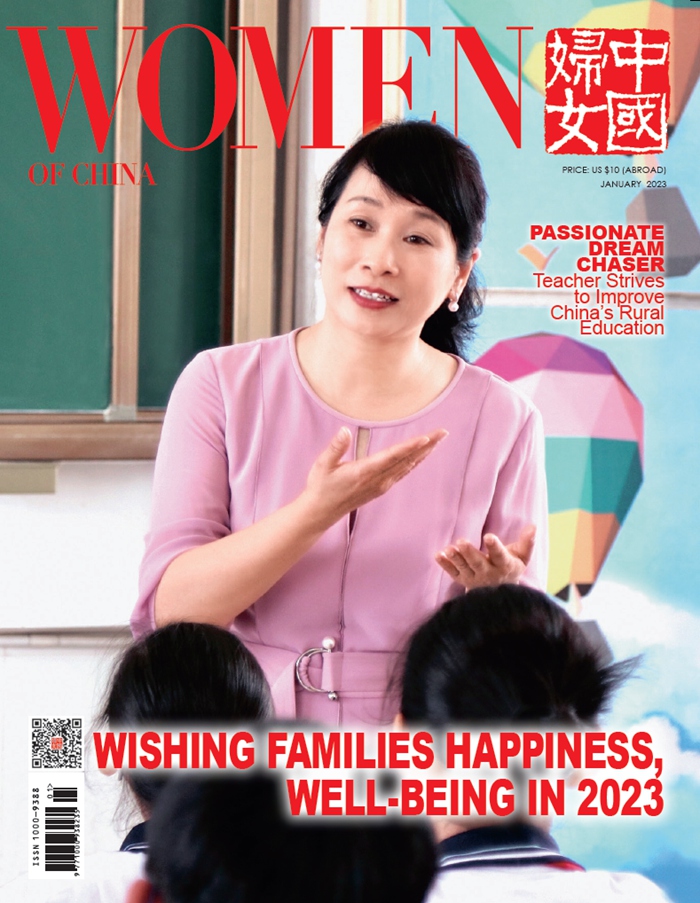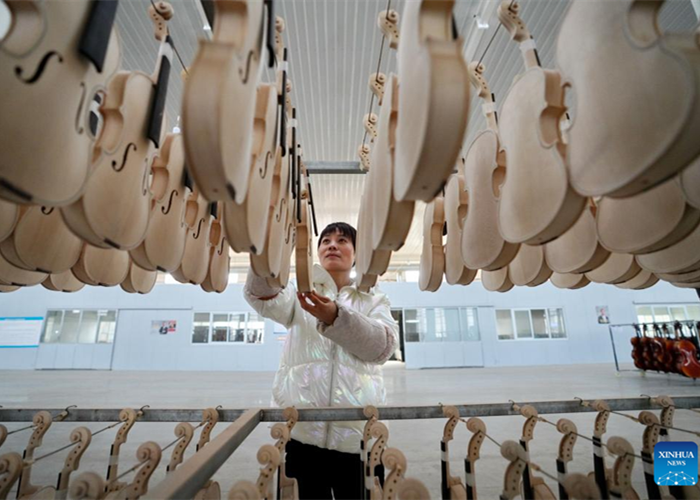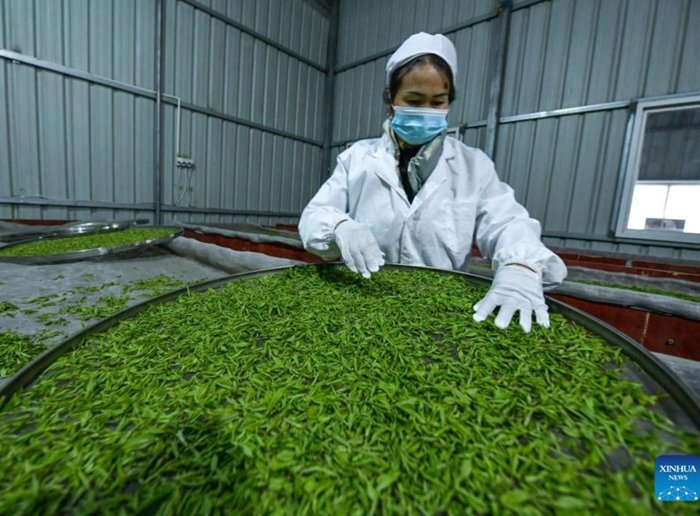President of Women's Federation Leads Villagers to Shake off Poverty via Online Sales
 |
| A livestreaming show for promoting loquats is held with the support of Wu Suhua, president of Women's Federation of Yanshu Village, Yunxiao County, Zhangzhou City, in Southeast China's Fujian Province. [China Women's News] |
An online sales activity to help low-income families sell their loquats was held recently in Yunxiao County, Zhangzhou City, in Southeast China's Fujian Province amid the novel coronavirus (COVID-19) epidemic.
"Our loquat fruits are big, soft and fragrant, with rich nutrition," Wu Suhua, president of the Women's Federation of Yanshu Village, said in the livestreaming show. The slow-moving fruits due to the epidemic became sought-after through the livestreaming show.
Yanshu Village is a key poverty-alleviation and development village with 19 impoverished households. Planting loquats is its main source of income. Due to the epidemic, the fruits' offline sales were blocked, causing a great deal of anxiety for fruit growers.
"I have participated in e-commerce training, and I can guide villagers to start online sales," Wu said. She encouraged the young people in the village to sell their products through online stores, livestreaming platforms and other e-commerce platforms.
Wu also visited from door to door, to promote knowledge about online sales and answer their questions. During the visits, she made detailed investigations of the village's yield of loquats.
In the critical period of epidemic prevention and control, Wu called for a "non-contact purchase" method, derived from the non-contact delivery now popular in the service sector, to avoid mass gatherings as well as harvest delays.
She demonstrated to villagers how to select, grade and pack loquats to ensure the quality of the loquats. The villagers can weigh and wrap up the fruits at home in advance, and write down the fruits' weight and their name and telephone number on each box. Then, they send a representative to deliver the packaged fruits to one of the three collection sites in the village. The volume of loquats delivered to the collection sites can reach 3,000 kilograms per day.
Wu also actively looked for out-of-town merchants and invited them to inspect and purchase the fruits directly. The purchasers have to be quarantined in a fixed quarantine site, but they are provided with accommodation and packaging and logistics services.
Under Wu's influence, workers in other departments began to offer targeted services to support fruit farmers, especially those registered impoverished families, to hold livestreaming shows and operate online stores.
"At first, we thought that the fruit would be sold at a low price due to the epidemic. To our surprise, thanks to Wu, my family's income this year has increased by more than 20,000 yuan (US $2,817)," said Wu Yuan, from a registered impoverished family.
"Happiness is achieved through hard work. I will help the villagers sell more products to more places around the country," says Wu, expressing her confidence in lifting the villagers out of poverty and become rich.
(Source: China Women's News/Translated and edited by Women of China)
Please understand that womenofchina.cn,a non-profit, information-communication website, cannot reach every writer before using articles and images. For copyright issues, please contact us by emailing: website@womenofchina.cn. The articles published and opinions expressed on this website represent the opinions of writers and are not necessarily shared by womenofchina.cn.








 WeChat
WeChat Weibo
Weibo 京公网安备 11010102004314号
京公网安备 11010102004314号